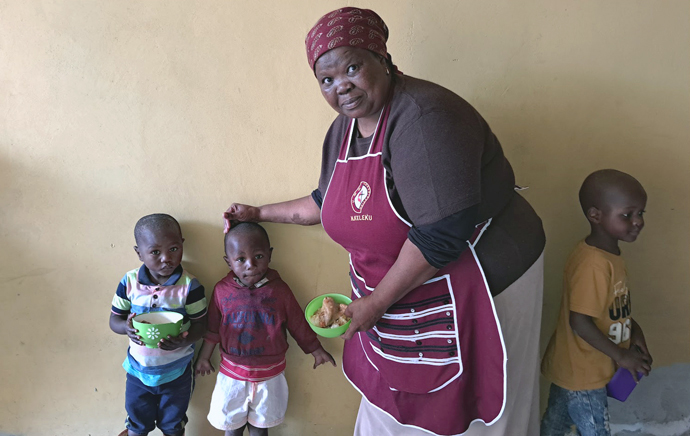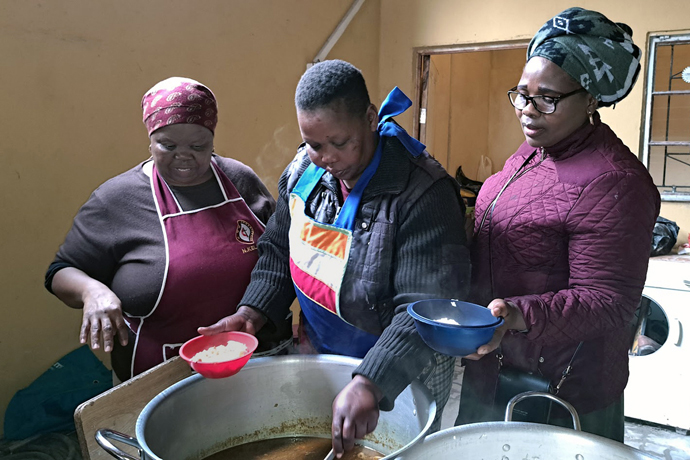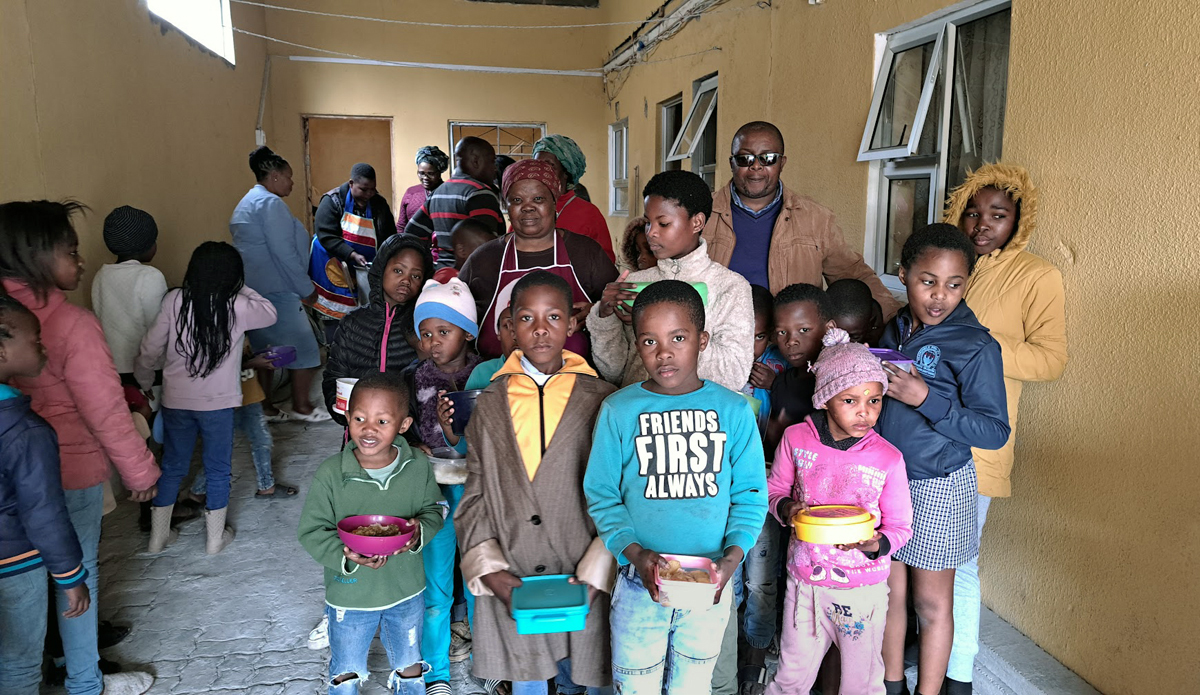Key Points:
- During the COVID-19 pandemic, Nokwanda Keleku and Vuyelwa Thanda started a soup kitchen in their home to feed disadvantaged children.
- Low-income communities were particularly hard hit by strict lockdown rules, as families faced income loss and food insecurities.
- Today, the food kitchen operates twice a week and serves about 200 kids and some parents.
When the COVID-19 pandemic struck, shutting down global economies, two United Methodist women started a soup kitchen in their home to feed disadvantaged children.
Nokwanda Keleku and Vuyelwa Thanda noticed a need in Philippi, a township community in Cape Town, South Africa.
“It all started after Vuyelwa and I witnessed kids fighting on the street over a vetkoek (a small, unsweetened cake of deep-fried dough),” said Keleku. “This gave birth to the idea of starting a soup kitchen.”

Low-income communities were particularly hard hit by strict lockdown rules as poor families faced income loss and food insecurities.
“We started witnessing kids and parents going door-to-door asking for mealie meal to prepare food for the day,” Thanda recalled. “We approached the church for financial support. Sadly, the church didn’t have funds available for such an initiative.”
Undeterred, the women started Masakhane Soup Kitchen in 2020. “Masakhane” means “Let’s build one another.” Thanda and Keleku used their own funds to buy ingredients. On the first day, 150 children were fed.
The Rev. Ntambozoxolo Nkomo, pastor-in-charge of The United Methodist Church’s Cape Town Circuit, said he visited often when the soup kitchen began.
“I used to go to Masakhane to pray with kids and read them the Bible before they received their meals,” said Nkomo. “This also strengthened the evangelism they were getting in the form of food.”
Christopher Mondleki, Cape Town Circuit lay leader, saw the potential of the food ministry.
“After witnessing great works being done by our church members, I knew this project was the answer for our community,” he said. “The church started supporting the project, and as we speak, Cape Town Circuit is part of this great initiative.
“A lot of families are being assisted, and with full and enough resources, we can do more.”

Seventh-grader Imikuthi Booi is grateful for the soup kitchen.
“Since the beginning of Masakhane Soup Kitchen in 2020, I come here daily to enjoy different types of cooked meals that I don’t get at home.”
Booi’s experience is similar to that of many children, not only in South Africa but in other African countries.
“Both my parents are not working,” Booi said. “They rely on social grants from the government, which is not enough for our keeping.”
A social grant is paid by the South African Social Security Agency to assist citizens who are disabled, seniors, war veterans, foster children or those eligible for child support.
“I come here twice a week to get some food,” said Philisande Mone, 15. “I live two kilometers (1.2 miles) away. My mother benefits from grant money, and she finishes all of it buying alcohol, leaving us with nothing to eat.”
Today, Masakhane Soup Kitchen operates two days each week, feeding some parents as well as children.
Subscribe to our
e-newsletter
“It is not by choice,” said Nontihlile Senti, a mother of three, “but the situation is forcing me and other parents that you see here. Back home, there is nothing to eat.”
The soup kitchen has become an instrument for evangelism.
“The United Methodist Church managed to get some new members from this soup kitchen project,” said Nkomo, “after community members witnessed works being done by our church members and the church as a whole.
“Due to the high number of new members joining the church in that area, we ended up opening a new local church called St. Joseph.”
However, Keleku acknowledged that the ministry has experienced hurdles.
“Funding is a huge challenge,” she said. “Most equipment and utensils we use require upgrading as we are feeding more than 200 kids (weekly).
“With the little we have, we always keep smiles on these little ones. God rewards us daily.”
Makunike is director of communications for the South Africa Conference of The United Methodist Church. News media contact: Julie Dwyer, news editor, [email protected] or 615-742-5469. To read more United Methodist news, subscribe to the free Daily or Weekly Digests.




